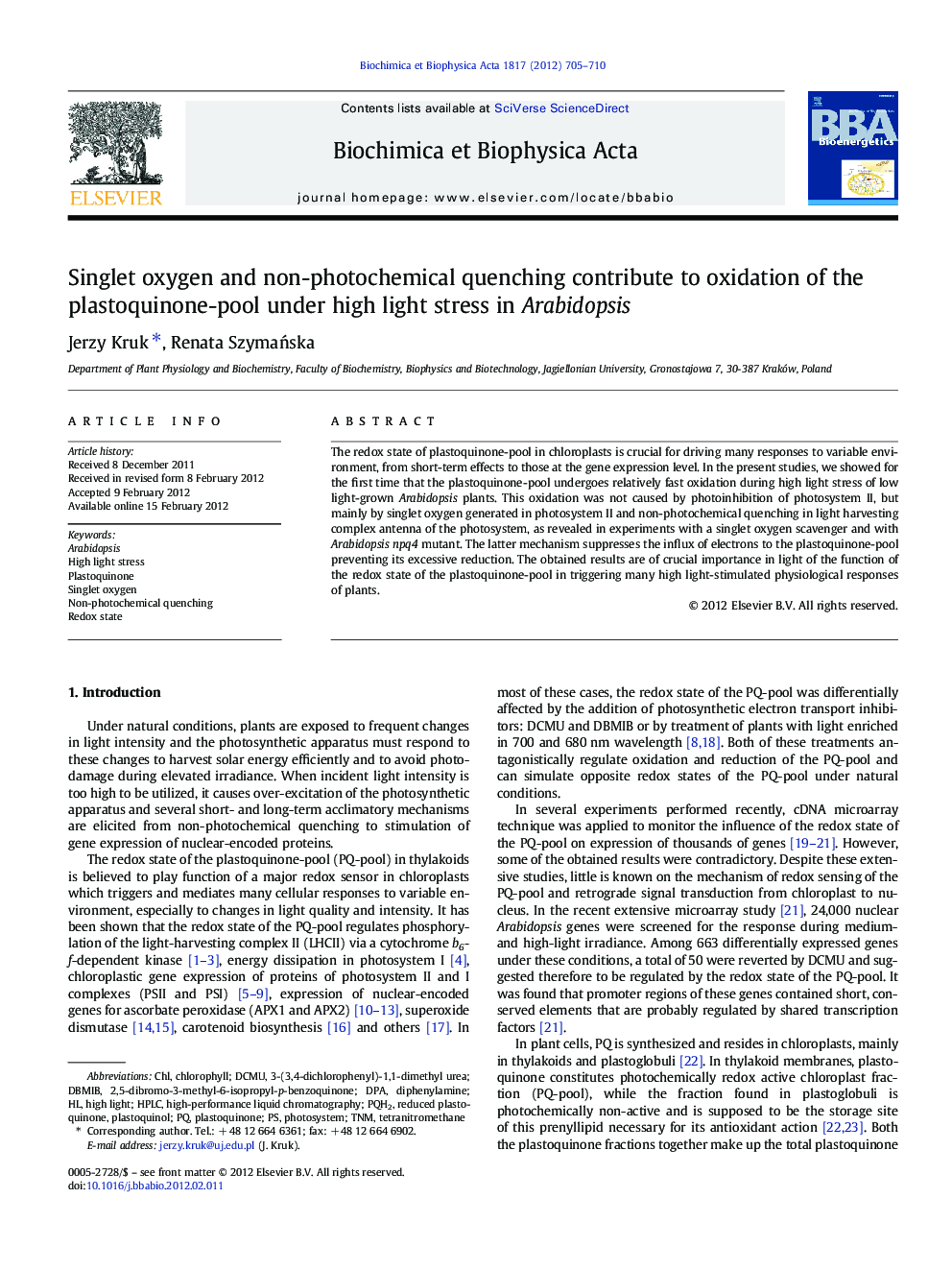| Article ID | Journal | Published Year | Pages | File Type |
|---|---|---|---|---|
| 1942453 | Biochimica et Biophysica Acta (BBA) - Bioenergetics | 2012 | 6 Pages |
The redox state of plastoquinone-pool in chloroplasts is crucial for driving many responses to variable environment, from short-term effects to those at the gene expression level. In the present studies, we showed for the first time that the plastoquinone-pool undergoes relatively fast oxidation during high light stress of low light-grown Arabidopsis plants. This oxidation was not caused by photoinhibition of photosystem II, but mainly by singlet oxygen generated in photosystem II and non-photochemical quenching in light harvesting complex antenna of the photosystem, as revealed in experiments with a singlet oxygen scavenger and with Arabidopsis npq4 mutant. The latter mechanism suppresses the influx of electrons to the plastoquinone-pool preventing its excessive reduction. The obtained results are of crucial importance in light of the function of the redox state of the plastoquinone-pool in triggering many high light-stimulated physiological responses of plants.
► Plastoquinone-pool undergoes fast oxidation during high light stress of Arabidopsis. ► This is not caused by photoinhibition of photosystem II. ► Oxidation of the pool is caused by singlet oxygen generated in photosystem II. ► Non-photochemical quenching also contributes to the oxidation.
